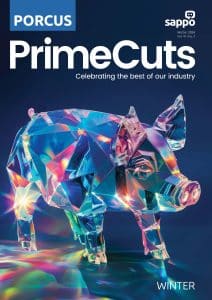The all-time low point of profitability in the South African pork industry was highlighted recently at the Bureau for Food and Agriculture Policy (BFAP’s) annual agricultural outlook. This alarming situation is affirmed by the recent depopulation of many piggeries of various sizes. With SAPPO’s annual general meeting (AGM) around the corner, we should prepare to critically reflect on the state of the industry and our collective response to ensure the sustainability of the industry.
There are three distinct factors that need to be considered. Firstly, along with the global pig economy, we are living through many compounding disruptions impacting the supply and demand economics of primary producers of all sizes. The risk of accelerated consolidation and greater vertical integration across the formal market-orientated sphere of the industry is prevalent in a number of depopulations among medium- and small-sized growers. Consequently, for the foreseeable future, the dualistic competitive structure of the South African pig economy will be further cemented if heightened cost efficiencies are not realised. This is a reality that should be dreaded from both a producer and an industry perspective.
Secondly, as we have experienced in the last few weeks, over the next few years, the risk of running a livestock business is going to increase as both industry organisations and state departments try to contain the spread of animal diseases. Industry organisations, including SAPPO, have already started to evolve into service-based organisation that have the capacity to respond alongside various stakeholders to risks across the pork value chain. This evolution that is taking place across organised agriculture will bring ample opportunities, but the scale and severity of the coming change-management exercise will sweep over the complexity of old forums and structures. This may cause discomfort and frustration, but it should be addressed with visionary leadership.
Thirdly, the compounded impact of disruptive macroeconomic trends and the incompetence of both industry and state departments to adequately respond to industry risks such as disease outbreaks, will lead to the interrogation of pig industry’s own strategy. This is justified and should be welcomed. We should own up to the state of the value chain in its entirety. In fact, my experience of pig farmers is that their ability and culture to ask uncomfortable questions is what has brought about their past competitiveness. It is comforting to know that SAPPO is being kept honest by its stakeholders as it highlights the shared responsibility that we have all accepted to ensure the sustainability of the industry.
As the economic grip tightens, we will be tempted to plot stakeholders against each other and tone down the boldness of our vision. The scale, pace, and extent to which SAPPO, alongside other livestock organisations, can timeously and effectively respond to the changing business landscape will be tested. At times, elements of the pig industry strategy may seem misplaced or irrelevant to a certain group or segment of the value chain, only to find that it forms a small but critical part of a bigger whole. The importance of a movement application on the World of Pork that SAPPO once struggled to implement at scale has proven to be a case in point during the current livestock movement ban. As a leadership team, we are looking forward to the weeks ahead. Let us celebrate the robustness and tenacity of our agriculturalists as we go through these trying times.
The South African Pork Producers’ Organisation (SAPPO) coordinates industry interventions and collaboratively manages risks in the value chain to enable the sustainability and profitability of pork producers in South Africa.









